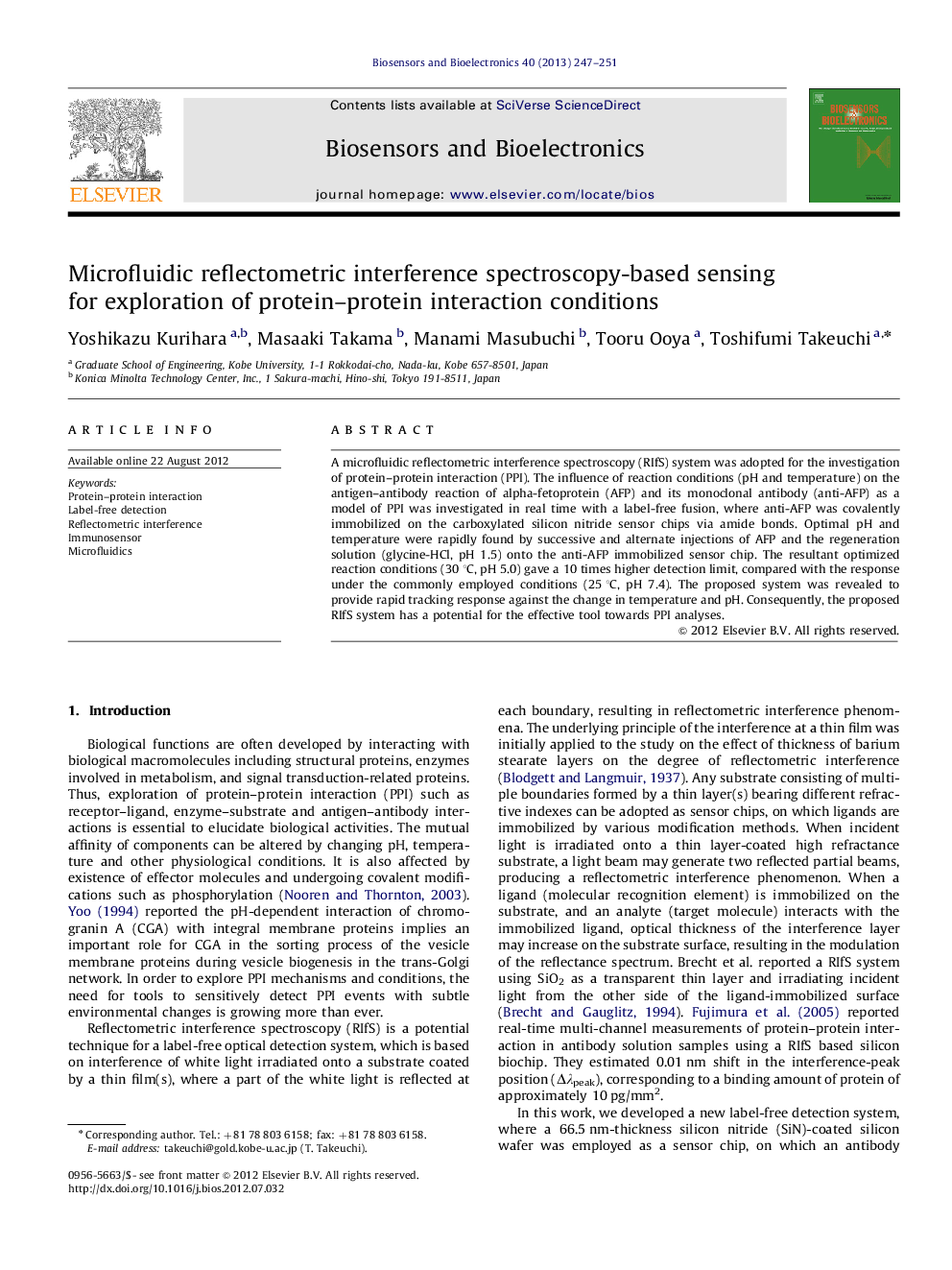| Article ID | Journal | Published Year | Pages | File Type |
|---|---|---|---|---|
| 7234620 | Biosensors and Bioelectronics | 2013 | 5 Pages |
Abstract
A microfluidic reflectometric interference spectroscopy (RIfS) system was adopted for the investigation of protein-protein interaction (PPI). The influence of reaction conditions (pH and temperature) on the antigen-antibody reaction of alpha-fetoprotein (AFP) and its monoclonal antibody (anti-AFP) as a model of PPI was investigated in real time with a label-free fusion, where anti-AFP was covalently immobilized on the carboxylated silicon nitride sensor chips via amide bonds. Optimal pH and temperature were rapidly found by successive and alternate injections of AFP and the regeneration solution (glycine-HCl, pH 1.5) onto the anti-AFP immobilized sensor chip. The resultant optimized reaction conditions (30 °C, pH 5.0) gave a 10 times higher detection limit, compared with the response under the commonly employed conditions (25 °C, pH 7.4). The proposed system was revealed to provide rapid tracking response against the change in temperature and pH. Consequently, the proposed RIfS system has a potential for the effective tool towards PPI analyses.
Related Topics
Physical Sciences and Engineering
Chemistry
Analytical Chemistry
Authors
Yoshikazu Kurihara, Masaaki Takama, Manami Masubuchi, Tooru Ooya, Toshifumi Takeuchi,
